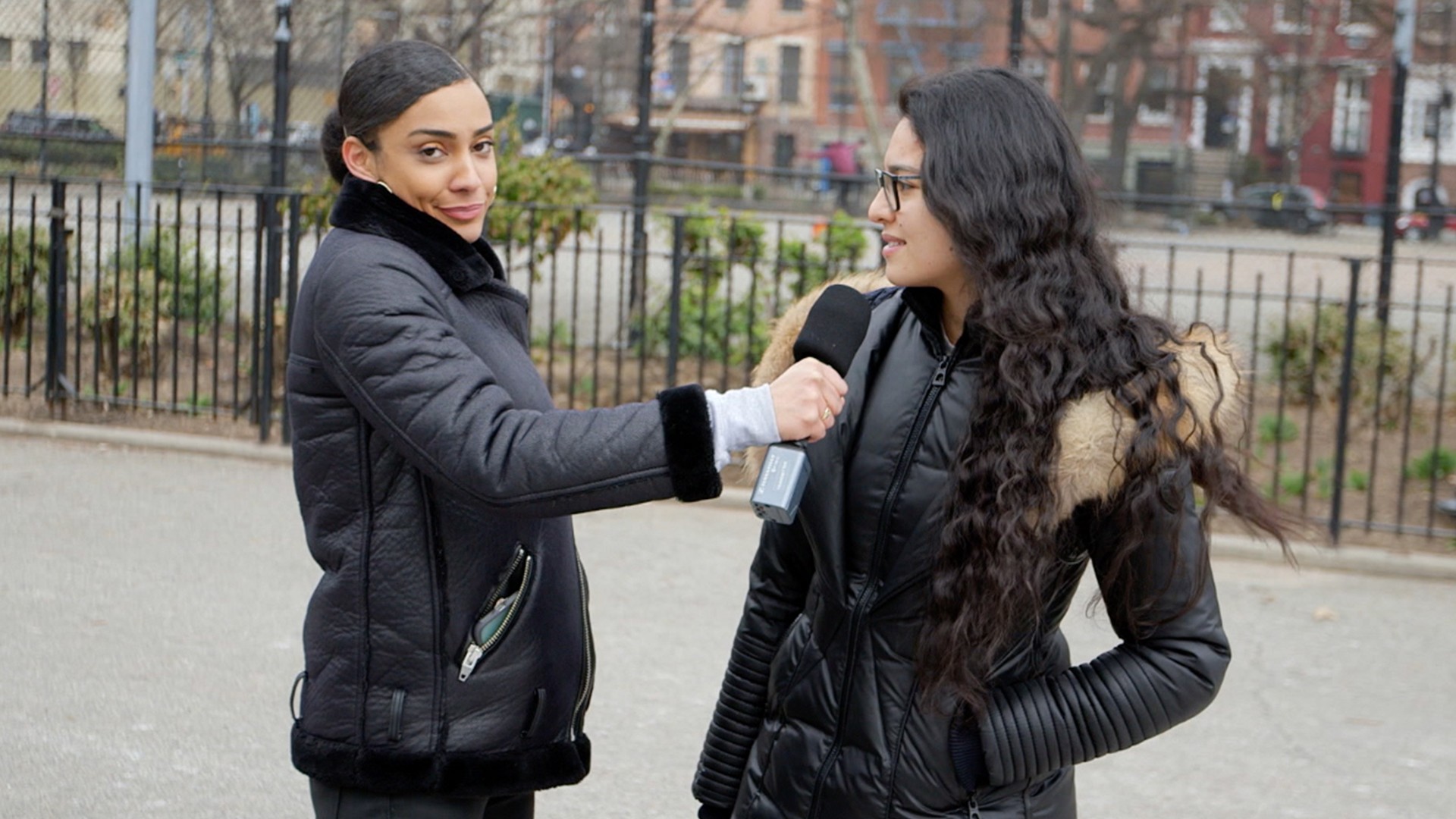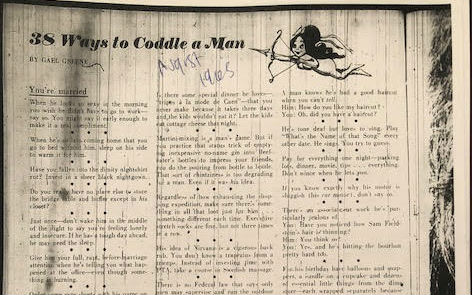Don't Talk About Sex on Dates…Kiss on a First Date… Or Dress to Accentuate Sexual Appeal

Douche Often
A Gentle Spring ad, left, from 1978. Demure ad was from 1969.
Learn Where to Smoke
Coddle Your Man

“Just once—don’t wake him in the middle of the night to say you’re feeling lonely and insecure. If he has a tough day ahead, he may need the sleep.”
“Give him your full, rapt, before-marriage attention when he’s telling you what happened at the office.”
“His idea of Nirvana is a vigorous backrub… Instead of investing time with the PTA, take a course in Swedish massage.”
"If you know exactly why his motor is sluggish (his car motor) don't say so."
Earn Money… Like a Man
“Can You Keep Going Without a Daily Dose of Praise?”
“Can You Manipulate Circumstances to Your Advantage?”
That last one is indeed real, and about it Bird writes, “Don’t laugh. The working world is full of men, and they are not there to play the mating game. A few women do sleep their way to the very top, but that is not a reliable means of professional mobility.”Yep, sounds right.“Can You Regard Men as People Instead of Sex Objects?”

